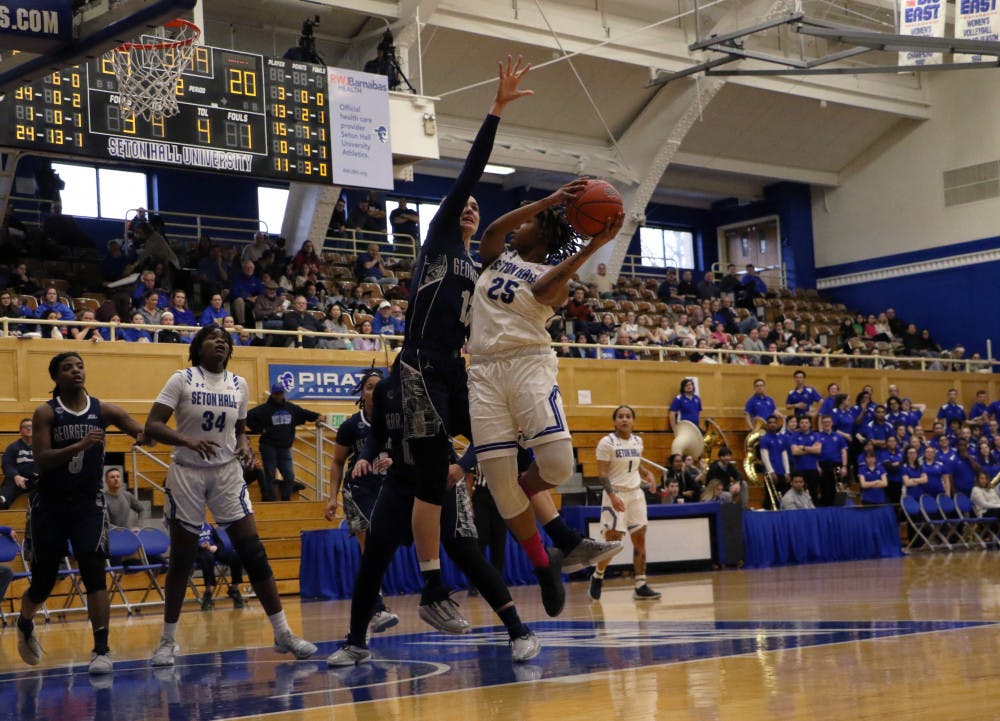One of Seton Hall's associate professors, Dr. Zheng Wang, has been chosen by the United States Institute of Peace as a recipient of the Jennings-Randolph Senior Fellowship, which gives him the opportunity to spend 10 weeks in Washington, D.C.
During his 10 weeks at the United States Institute of Peace, Wang will write a book on conflict resolution. This fellowship will give him time to focus on research and writing without the additional academic duties he would be responsible for while teaching at the Whitehead school.
He will also conduct conflict resolution training workshops in China and prepare a special report on the conflict management between United States and China.
"China's ascendance in world affairs is one of the most significant and challenging issues in today's international system," Wang said. "This rise has presented thorny questions about the peace and security of the twenty-first century."
This is closely related to Wang's work at the Whitehead school, where he has been teaching courses including Conflict Resolution and Peace Building, Art and Science of Negotiation and International Mediation since 2005.
A former recipient of the fellowship and the dean of Seton Hall's Whitehead School of Diplomacy, Ambassador John Menzies, was able to utilize the tools he gained in Washington in order to implement improvements at the diplomacy school.
"I continue to meet and work with USIP staff and fellows," Menzies said. "Even now we are using USIP materials in the Whitehead School to direct our focus on new programs."
After the fellowship, Wang plans to bring what he learns back to the Whitehead School in a way similar to that of Menzies.
"I believe that I would gain a great deal from USIP's connections and other special resources," Wang said. "This experience would play a critical role in my future professional development. I also want to use my time at USIP to help the Whitehead students for internship and career opportunities in Washington, DC."
Despite being focused on his plans to spend time in Washington for the fellowship and his enthusiasm to instill his learned values at the Whitehead School, Wang was somewhat surprised that he had been given this rare opportunity.
"I was thrilled to receive this award. I did not expect too much to get this fellowship," Wang said, "as its normally given to people much more senior than me, such as former ambassadors."
U.S.-China relations are a growing issue and Wang feels this played an important role in the USIP's choice of him for the fellowship. One of Wang's graduate students, Vance Crowe, is sure that Wang's extensive knowledge of U.S.-China relations is why he was noticed.
"There are perhaps only a handful of people in the entire world that have both the deep understanding of Chinese culture, language, history and worldview that also have the capacity to interpret and explain this knowledge to a lay audience," Crowe said. "I think that USIP must have sensed that, and jumped at the opportunity to support Dr. Wang's important work."
Crowe also stated that working with Wang has been one of the most rewarding parts of graduate school.
Chandra DeNap, who has worked on projects with Wang, both in and out of the classroom, noted the importance of current U.S.-China relations.
"The project Dr. Wang will work on at USIP focuses on China and conflict resolution. This is an important and timely topic because, as that country becomes more powerful, it will be ever more important for its leadership to be able to deal with conflicts constructively and for the international community to understand China, its history and its culture."
According to the United States Institute of Peace, its goals are to help prevent and resolve violent international conflicts; promote post-conflict stability and development; and to increase conflict management capacity, tools, and intellectual capital worldwide.
The fellowship is one of the central functions of USIP and one of its greatest strengths. It is the major annual grant competition in the field of international peace and security.
It is the dedication to the cause of peace that draws USIP together and joins individuals within the community," Menzies stated. "USIP is unique, and the U.S. and the world need such an institution."
Nicole Bitette can be reached at nicole.bitette@student.shu.edu.





